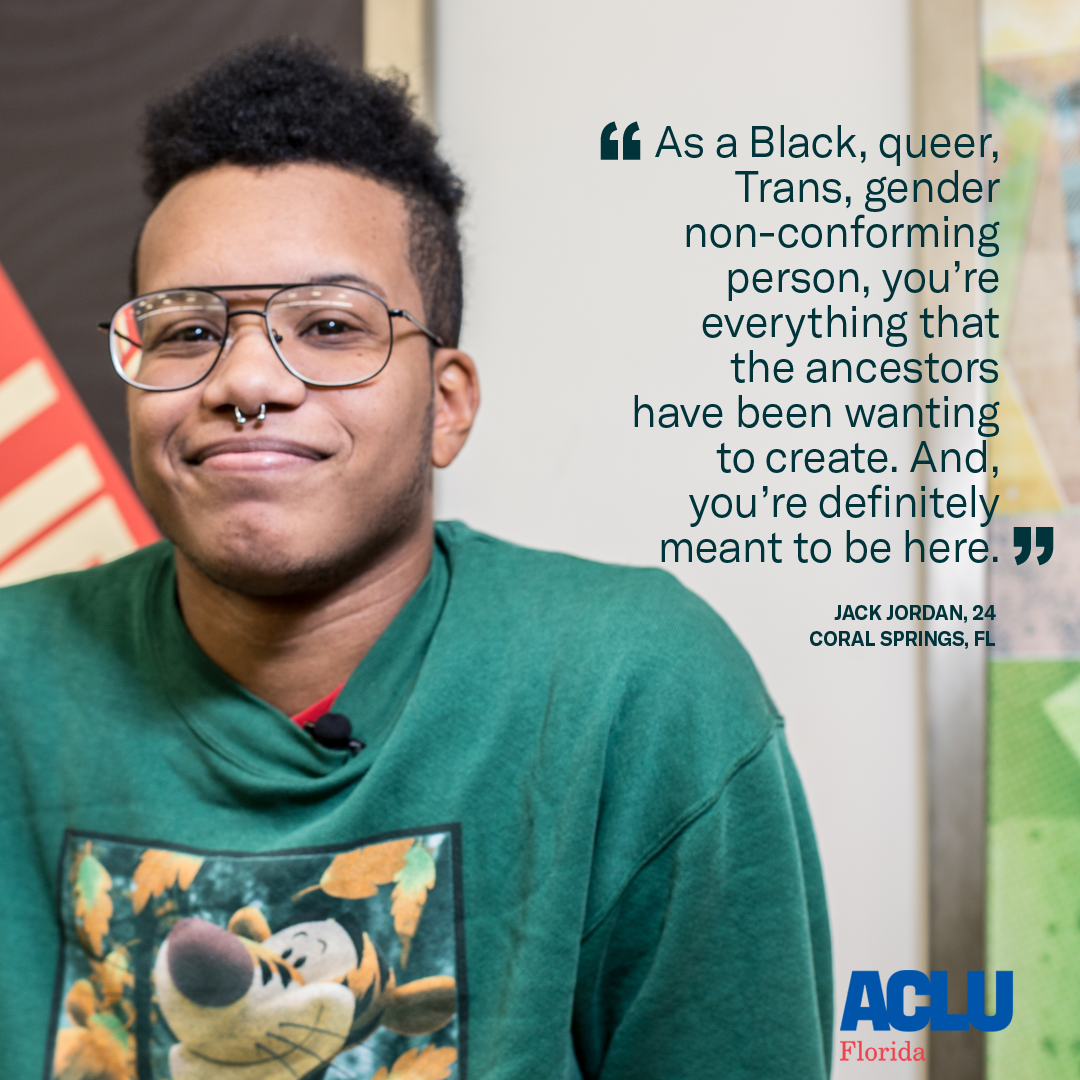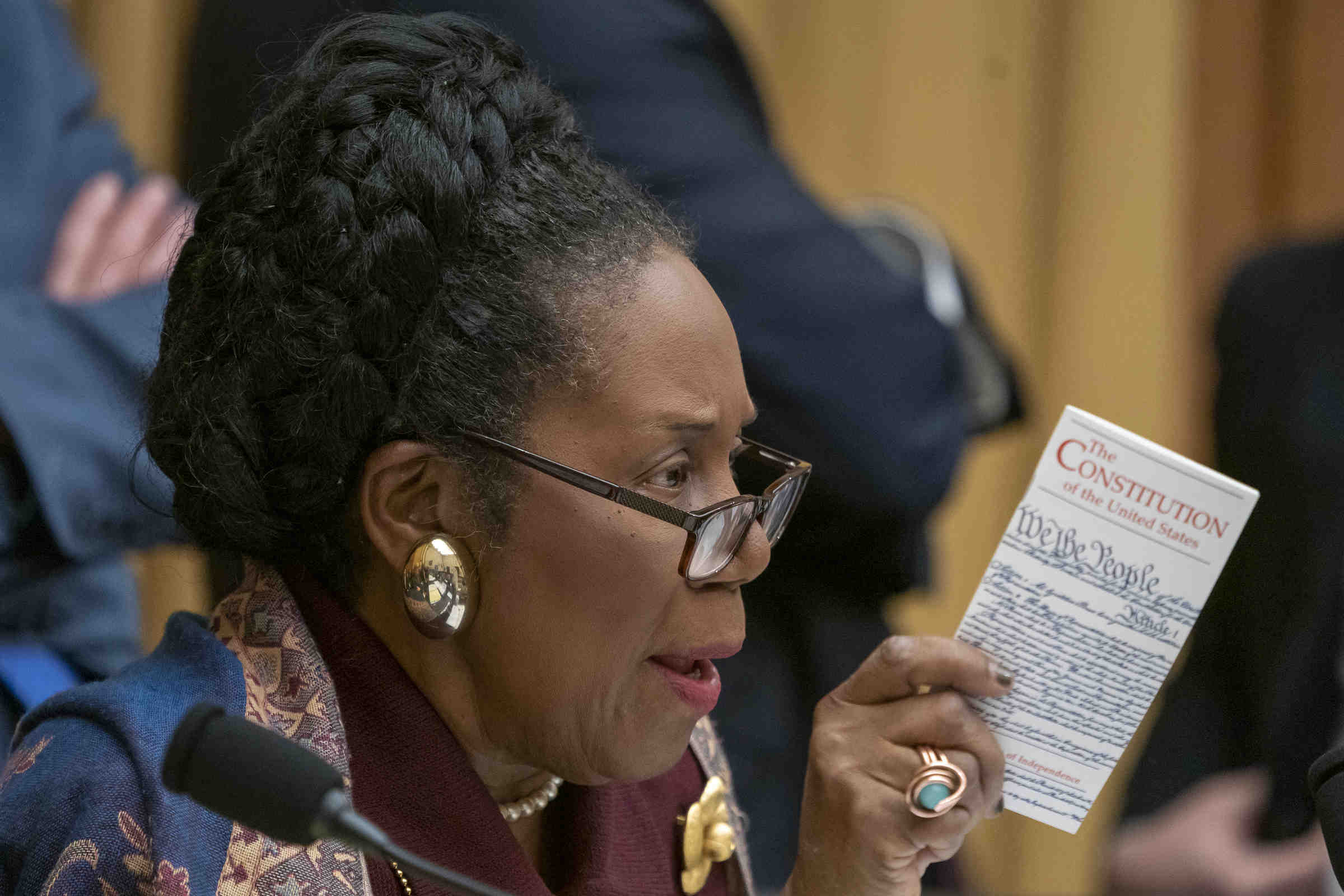This feature is part of the ACLU of Florida's "LGBTQ+ Youth Activist Project" commemorating Pride Month during the month of June.
"My name is Kezia Gilyard. I'm 27-years-old. I work at Broward County Public Schools as the LGBTQ+ Coordinator."
Q: How does your work make our community a more inclusive and open place for everyone, regardless of where they come from, how they identify, or who they love?
A: "About 276,000 students are in our school district. And about fifteen percent of those are LGBTQ, so about 40,000.
"I've seen students who go from having really unsupportive dismissive, sometimes hostile families when they first come out, who end up having parents who say, 'You know you are my son. And they'll come tell me.' I've had parents send me copies of birth certificates that are updated with the correct gender marker. I've had kids who've come to our LGBTQ+ Youth Summit and use the restroom that aligns with their gender identity for the first time. Even in elementary school, our students do have a political consciousness. They do understand that these times are not safe for students like them."
Q: What do you see as the most pressing issue currently affecting LGBTQ youth? What do you think will help alleviate it?
A: "I've had a lot of transgender students in high school who say because I have an unsupportive family I know I can just go into the military when I graduate and, now there's the military ban. So, that's no longer an option. And, for a lot of them that was their only option. Because of bullying sometime they would skip school so their grades aren't where they need to be. They thought, here's this one thing that I can do with my life in a place where I know I can get quality healthcare in the military. And, that's no longer an option for a lot of them. And, that's landed a lot of my students in a very dark place.
"Hope is a fragile thing but I really do try work with those students and help them understand that there's always another way. There's always a way to get out there. I do work with quite a few students who are experiencing homelessness. So, nationally, about forty percent of homeless youth or youth experiencing homelessness are LGBTQ. So, within our school district we have quite a few homeless students and I work with the students who are LGBTQ in conjunction with our homeless department.
"And, so they also understand that the changing tide politically will have an impact on whether or not they can find safe, adequate, affordable housing in South Florida.
"We see a lot of policies that dictate what students can look like, dress like, feel like, be like. Where they can use the restroom and where they can't. Where they can use the locker room and where they can't. With the ageism, there's a certain distrust that students know what they need and what makes them feel safe and affirmed. So, there needs to be a trust and there needs to be a sharing of power at the table. And, decision making at the table for students to be able to tell adults this is what I need and this is what makes me feel safe."
Q: What message of encouragement would you like to send to LGBTQ youth who may not have the love and support to know that they are worthy and capable of being themselves, regardless of circumstance?
A: "During this Pride Month of June, 2019, on the heels of the 50th anniversary of the Stonewall Riots, I will say to any youth who is experiencing discomfort, homophobia, transphobia, biphobia, and all of the phobias that intersect our lives. I will say remember that you are your own person. No one can tell you who you are or who you aren't. You know who you are and it's okay if it takes you awhile to get there.
"Everyone takes a while to learn who they are, but you know who you are so, speak for yourself.
"Don't allow anyone to speak for you. And, there is nothing about us without us."
Kezia Gilyard, 27, is from Fort Lauderdale, Florida.
Date
Friday, June 21, 2019 - 6:00pmFeatured image



